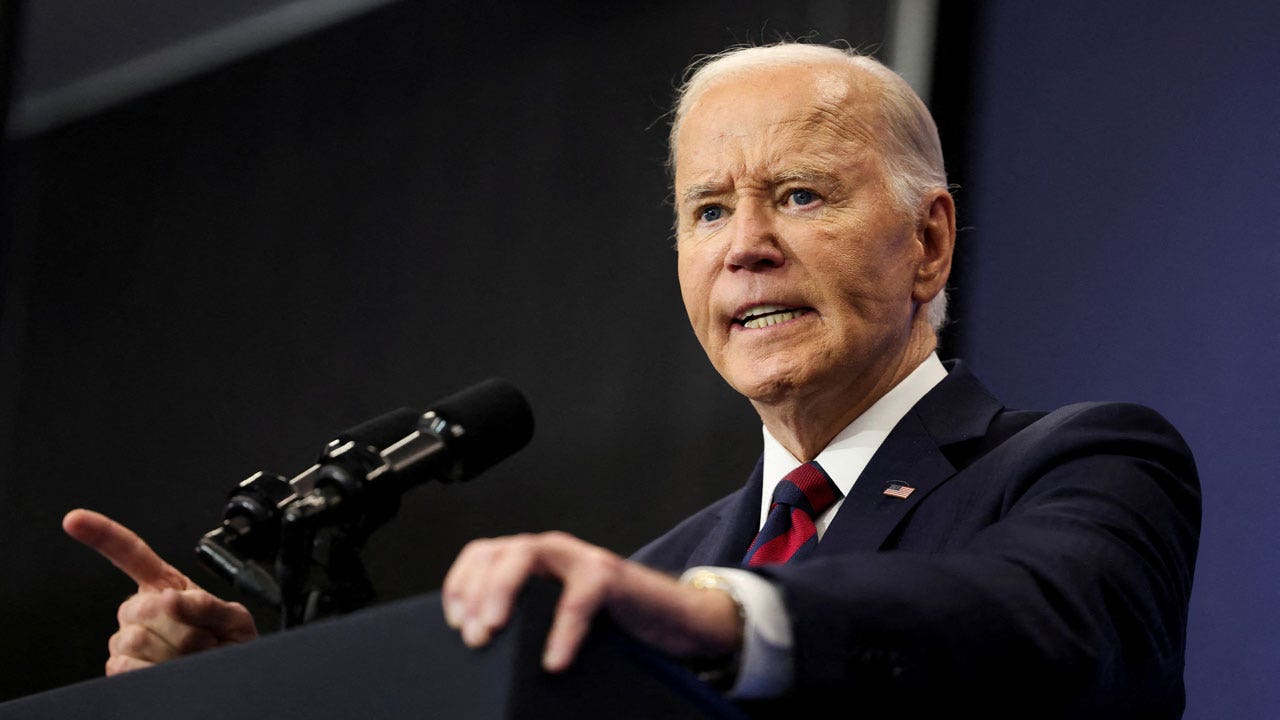In his first speech before the joint houses of Congress, President Ferdinand Marcos Jr. promised on Monday to protect the Philippines’ territorial integrity from China, while also asking lawmakers to back programs for boosting an economy ravaged by COVID-19 lockdowns.
The new Philippine president delivered his more than hour-long State of the Nation Address mostly in English, unlike his immediate predecessor who usually addressed lawmakers in Tagalog.
“I do not intend to diminish the risks and challenges that we face in this turbulent time in global history, and yet, I see sunlight filtering through these dark clouds,” Marcos said. “The state of the nation is sound.”
As he discussed China’s renewed encroachment into Philippine-claimed waters in the South China Sea, Marcos did not mention Beijing by name but declared he would protect his country’s territorial integrity.
“We live in difficult times brought about by some forces of our own making, but certainly, also by forces that are beyond our control,” Marcos said in the nationally televised address. “But we have, and we will continue to find solutions.
“On the area of foreign policy, I will not preside over any process that will abandon even one square inch of territory of the Republic of the Philippines to any foreign power,” Marcos said.
Marcos, the son of the longtime Filipino dictator Ferdinand E. Marcos, took office on June 30 amid Sino-Philippine tensions in the contested waterway as well as naval maneuvering and competition for influence among Southeast Asian countries by rival superpowers.
In his speech, he was careful not to appear to side with either China or the United States.
“With respect to our place in the community of nations, the Philippines shall continue to be a friend to all and an enemy to none,” he said.
![]()
He gave the speech weeks after Chinese officials praised him, saying that bilateral ties were moving into a “golden era” of cooperation under Marcos. Earlier on, he had said he would assert a 2016 arbitration court’s decision that ruled in favor of Manila and against Beijing’s territorial claims in the South China Sea.
That issue has been a constant irritant and Duterte was seen as a leader who failed to confront China over the ruling, in exchange for better economic ties.
Realizing that the Philippines must rely on China and other nations for cooperation, Marcos on Monday said Manila would continue to be a “good neighbor” as it works for “mutually beneficial outcomes.”
“If we agree, we will cooperate and we will work together. If we differ, let us talk some more until we agree. After all, that is the Filipino way.
“But we will not waver. We will stand firm in our independent foreign policy with the national interest as our primordial guide,” he said.
Alliances, he said, are necessary as nations emerge from their own struggles with the pandemic and “provide the stability that all nations will need to emerge into the new global economy.
“The Philippines will continue to promote stronger and multi-faceted relationships with all our partners around the world,” Marcos said.
Marcos also promised to carry on with the vaccine program, but he ruled out imposing more lockdowns that have crippled the Philippine economy over the past two years.
“Beyond the issues that the pandemic has brought, the need for a stronger health care system is self-evident,” Marcos said, adding, “We must bring medical services to the people and not wait for them to come to our hospitals and health care centers.”
He promised that, “Together with Congress, we will create a Center for Disease Control and Prevention and a Vaccine Institute.”
In addition, he announced plans to modernize the agricultural industry.
Earlier in the day, Marcos’ cousin, Martin Romualdez, was elected as speaker of the House of Representatives and a political ally, Juan Miguel Zubiri, took leadership of the Senate. Marcos’ son, Sandro, was elected to the House in May and his sister, Imee Marcos, serves in the Senate.


Protests
Earlier on Monday, a downpour did not dampen the mood of hundreds of protesters who took to the streets of the Philippine capital region to air their concerns about Marcos’ leadership. Law enforcers allowed them to protest on a highway near Congress for a few hours before the speech.
Among the most vocal were members of the Campaign Against the Return of the Marcoses and Martial Law (CARMMA), whose members include victims under the two-decade rule of the late Ferdinand E. Marcos.
Hundreds of Filipinos who opposed the elder Marcos’ regime were killed or went missing and the regime was accused of stealing an estimated U.S. $10 billion from the nation’s coffers. A “people power” revolution toppled Marcos in 1986. He went into exile in Hawaii, where he died three years later.
His widow, Imelda, and three children were allowed to return and lost no time in rehabilitating the Marcos name. Imelda Marcos, 93, has been convicted of large-scale graft by the courts. But she remains out of prison and likely will never see the inside of the jail cell because her son now serves as president, analysts have said.
For CARMMA, Marcos did not offer anything to solve the country’s problems.
“During the elections and since his inauguration, Marcos II has made lying and deception his old and new normal. He painted the Marcos dictatorship as the golden years, but, at the same time, shamelessly told the people to ‘move on from the past’ – a past marked by killings, plunder, cronyism and puppetry,” the group said in a statement.
“The son, who, since his inauguration, can only reminisce on the words and acts of his dictator father, as he himself denies and escapes from the people’s demands beyond the myth of the 20-peso kilo of rice,” it said, referring to the president’s promise to cut the price of rice to about 35 cents a kg.
Luis Liwanag in Manila contributed to this report by BenarNews, an RFA-affiliated online news service.





















Discussion about this post